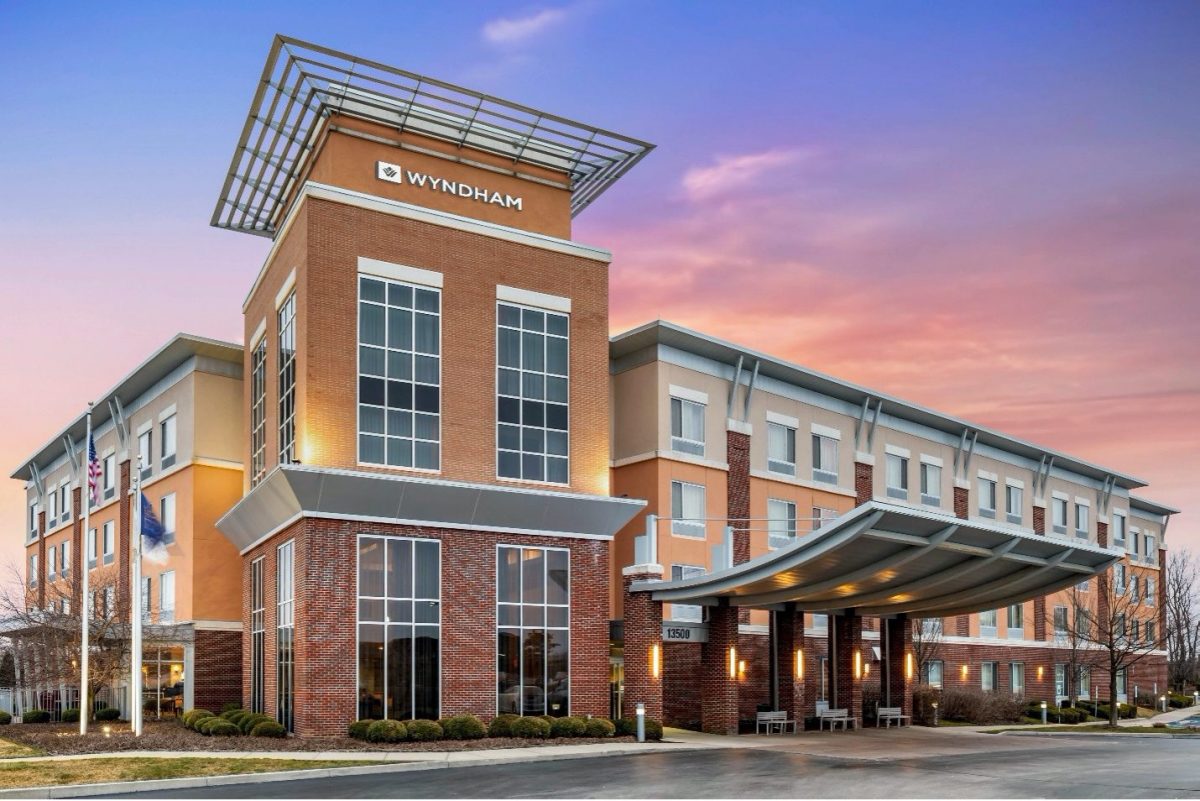Wyndham Ups Feeding Frenzy to Flip Brands of Existing Hotels

Skift Take
A growth strategy Wyndham laid out early in the pandemic is paying off.
A trio of recent hotel deals in the Midwest may not seem like much for the roughly 9,000-hotel Wyndham Hotels & Resorts portfolio, but the signing represented 100 percent conversion growth in the U.S. from the third quarter in 2019 to the third quarter of 2021. Conversions are a type of deal where the owner of an existing hotel takes on a new brand affiliation.
Michele Allen, Wyndham’s chief financial officer, said on an investor call two months into the pandemic the company was “igniting our conversion engine” to fuel growth through the downturn. That's largely because construction financing for new hotels dried up in light of decimated performance during the health crisis. In this instance, hotel owner Ceres Development swapped brand affiliation with Choice Hotels’s Cambria to Wyndham's namesake brand at two hotels in Indiana and one in Ohio.
It won’t be the last kind of this deal during the pandemic, both for Wyndham and all its competitors.
“It's a good time to be in franchising is what we say,” Chip Ohlsson, Wyndham’s chief development officer, said in an interview with Skift. “The owners really need us now.”
The driving argument at the negotiating table with conversions is that branded is better. The bigger brands like Wyndham or Marriott can provide a hotel owner operating under a smaller brand, or even as an independent hotel, a lift in resources like distribution channels, a loyalty program, and marketing.
The potential for these types of deals is massive. Wyndham CEO Geoff Ballotti noted last year there were more than 15,000 independent economy and mid-priced hotels across the U.S. Wyndham’s franchise and development teams aimed to beef up the company’s rate of conversion deals by three times their typical levels, he added on an investor call.
Wyndham executed more conversion deals in each of the first three quarters of this year compared to 2019, Ohlsson said.
There is also opportunity for deals internationally, as more hotels are independent abroad than they are in the U.S.
“Conversions have been and will continue to be a significant priority for our transaction teams around the world, and I think it’s in many ways the one silver bullet we have to offset the impact of ongoing construction delays,” Marriott CEO Anthony Capuano said on an investor call earlier this year.
Marriott added more conversion rooms to its portfolio in the first nine months of 2021 than over the entirety of 2019. These types of deals represented 30 percent of Marriott’s new deals for the first nine months of 2021 compared to 15 percent pre-pandemic, according to the company’s third quarter investor call.
Everyone is playing the conversion game, and it can get heated. Wyndham may have won out on this round, but Choice Hotels has managed to woo hotel owners from Wyndham in the past. It’s just as cutthroat in the broader hotel industry.
“We’re under assault from our competitors, as everyone is,” Radisson Hotels Americas CEO Jim Alderman told Skift earlier this year. “This is a very, very, very competitive business. It’s a very insular business. Almost everyone at one company selling franchises has worked for one of the other companies selling franchises, so you know everyone’s clients.”
Franchise teams sometimes deploy incentives like “key money,” capital that can go toward renovating the properties into the new brand’s various design and operational standards. Conversions may have taken off during the pandemic because lenders are hesitant to green light a new hotel project, but the renovations still take money.
Wyndham sometimes deploys key money, but it also tries to incentivize potential new franchisees with other offerings like revenue management services, Ohlsson said.
Companies like Marriott and Hilton typically come to the negotiating table at an advantage, given their size and global recognition. Ceres Development, which owns the three Midwestern hotels converting to Wyndham affiliation, also has hotels affiliated with Marriott and Hilton.
But David Crisafi, president of Ceres Development’s parent company, told Skift he was drawn to Wyndham after first working with the brand on a hotel still in development in Ohio.
“Above all, this is a business about relationships,” he said. “I was just impressed top to bottom with everybody over there from their finance franchise, general corporate leadership, and operational people. They’re very easy to work with.”
Along with existing brands, major hotel parent companies have added brands in the last year to appeal to owners like Crisafi and woo them to their respective portfolios. IHG added the Vignette Collection. Accor now has the Emblems Collection. Wyndham expanded with Registry Collection Hotels and Alltra, a brand targeting the all-inclusive resort sector.
While the Wyndham team declined to give a forecast on how much further conversions could grow, they have been vocal in the past these kinds of deals are likely to ramp up once lender flexibility and various pandemic relief measures dry up.
“People that felt either they didn't need a partner, or it didn't matter who the partner was, they now are taking a more focused look at their portfolio and saying, ‘I need the right partner for this hotel in this market,’” Ohlsson said.




